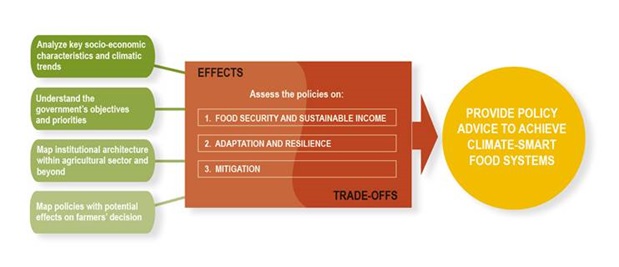What we do

Micro-economic analysis: we utilize household survey data collected from households to understand factors that influence the productivity and resilience of food production systems in the context of climate change. This includes ex-ante and ex-post impact evaluation of existing programs. It also includes farm-level management and technology adoption decisions, and the role of both institutional, geographic, and household characteristics in influencing these.
Macro-economic analysis: we employ an integrated approach that builds on the interplay between macro-economic models such as Computable General Equilibrium models and micro-simulation models to explore the effects of climate change on the economy, including household income and food security. By combining the farm level socio-economic data, macro-economic scenarios, and climate models we detect the heterogeneous impact of climate change on the economy. Moreover, by using scenario discovery techniques we identify policies able to increase adaptation to climate change.
Climate and bio-physical: we merge available geospatial data on soil quality and historical climate tends with household survey data to better understand the effects of climate change and variability on farmers ‘adaptive responses and to identify factors that may enhance welfare (e.g. yield, income, food security, nutrition etc.) or welfare stability under conditions of climate shocks.
Institutional and policy analysis: we work with governments to analyze their institutional architecture for climate change adaptation and mitigation, and to provide concrete recommendations and support for necessary policy and institutional reforms to achieve their policy objectives.

